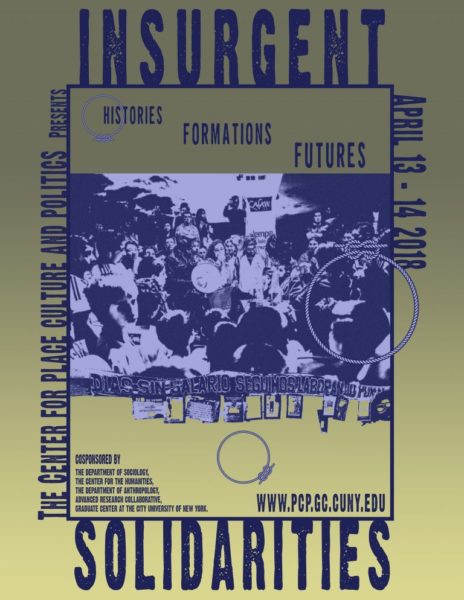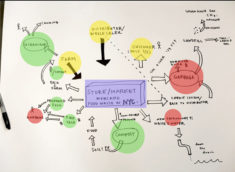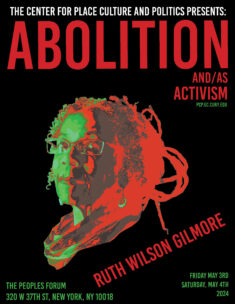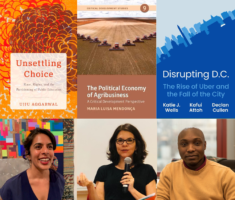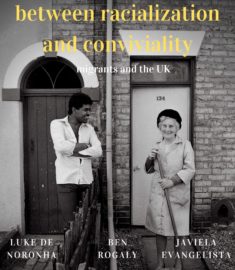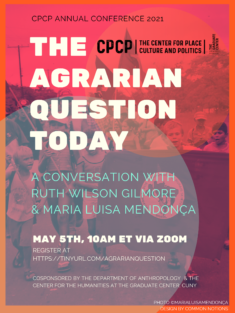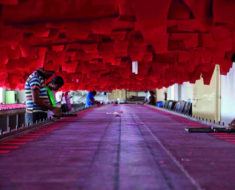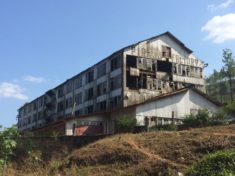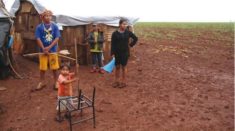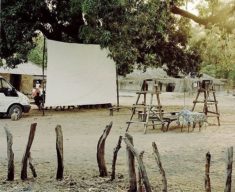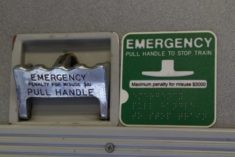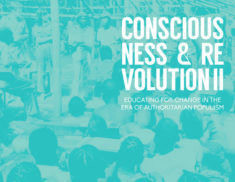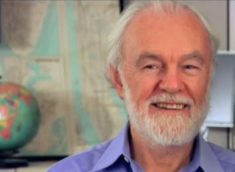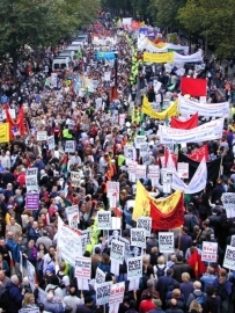About the conference
Given the political challenges of the present, the necessity for radical solidarity appears more pressing than ever. Yet while an understanding of solidarity has been pivotal to social change since at least the Haitian Revolution, how it is articulated has never been less than problematic. Is it a process of political change? Is it its goal? How does solidarity define what it is against without excluding forms of political difference that might enhance it? What can be learned from solidarity in the past, especially when contingent solidarity in the present regards such a history with justifiable incredulity? There can be no doubt that notions of solidarity continue to impact creatively how one understands political opposition and change, how one interrogates constituency and allies, goals and timelines. The differences of solidarity and a respect for the specificity of particular struggles clearly invigorates how solidarity is now engaged, but solidarity can also be more than negotiated coalitions and fragmented alliances. This conference brings together activists, scholars, activist scholars, and radical thinkers all to consider the meanings of solidarity for political work. What makes solidarity insurgent? Is it its composition or the kind of change it struggles to affect? What are its scales and modes and what are their significance today?
The Spring 2018 the Center for Place, Culture and Politics conference invites presentations on crucial aspects of solidarity that include examples of its historical prescience, current formations, and ideas for its future elaboration. Individual political movements continue to provide a powerful inspiration for other activists, and perhaps by discussing them a further solidarity may be implied, but in general the conference wants to encourage creative dialogue over gestural affiliations. The conference will be composed both of panels that introduce positions on these questions, and break-out sessions that will permit all attendees to more actively engage in their articulation. The goal is not to codify what might constitute insurgent solidarities, but is to actively encourage their possibility.
This conference is free and open to the public.
SCHEDULE
Day 1 (PANELS): Friday, April 13, 12:30pm to 8:30pm
Elebash Recital Hall, The Graduate Center, City University of New York, 365 Fifth Avenue (between 34th and 35th Street) New York, NY 10016
12:30pm–12:45: WELCOME AND OPENING REMARKS
12:45–2:20pm: ECONOMIES AND SOLIDARITIES
There are rich traditions of solidarity within, across, and between states around the politics of economic forms and processes. For instance, in the period of post-independence decolonization there were several attempts in the Global South to find working alternatives to the perquisites of capitalist global integration. Such a genealogy continues right through the alterglobalization movements of the present. This panel explores the continuing political possibilities of such conjunctions, but also examines the scale of solidarity, particularly when thinking of the power of the local and community creativity, like the worker cooperatives of Mondragon or Cooperation Jackson. Are the lessons of such cooperation generalizable? How can such solidarity be networked in the present?
Yasmin Lopez (National Coordinator of the Inclusive Development of Peasant Women, Honduran National Coordination of the National Articulation of la Via Campesina)
Giovanni Roberto (Comedores Sociales de Puerto Rico)
Mark Winston Griffith (CEANYC, Brooklyn Movement Center)
Moderator/Discussant: Abby Scher (Research|Action Cooperative)
2:20–4:30pm: LAND, WATER, TERRITORY
Social movements from around the world have been working to direct conversations about the right to land and water. Emerging from dialogues across the continents, analysis has taken shape that focuses on the contrast between land and water as commodities, as opposed to land and water that support the lives of communities. These dialogues bring the role of transnational corporations, which seek to control these resources for purposes of profit and speculation, into the spotlight, and challenge them via arguments about the need for community control and sovereignty. How do these social movements conceive of and practice solidarity across borders? How do they collaborate—and construct ways to shift the power to the people—to work on different scales? This panel will discuss the ways in which movements share analysis, tactics, and resources through popular and political education that challenge capitalist structures and worldviews, and put forth a vision in which land, water, and other natural resources are not commodities.
Francia Marquez (Proceso de Comunidades Negras, Colombia)
William Sacher (Minka Urbana / Universidad Andina Simon Bolivar, Ecuador)
Alexania Rossato (People Affected By Dams In Brazil-MAB)
Nick Estes (The Red Nation)
Moderator/Discussant: Rob Robinson (National Economic and Social Rights Initiative)
5:00–7:15pm: HISTORICAL AND GEOGRAPHICAL SOLIDARITIES
This panel looks at different ways that particular movements have struggled to pursue the ends of solidarity under particular historical and geographical conditions. We explore how these historically and geographically situated solidarities can serve as a basis for thinking and practicing solidarity today.
Saygun Gökariksel (Boğaziçi University, Istanbul, Turkey; LeftEast)
Robyn C. Spencer (Lehman College and Graduate Center, CUNY)
Jasmina Husanovic (University of Tuzla, Bosnia)
Oscar Otzoy (Coalition of Immokalee Workers)
Moderator/Discussant: Peter Hitchcock (Baruch College and Graduate Center, CUNY)
7:15–8:30pm: KEYNOTE: LIBERATED ZONES WERE REAL
Corsino Tolentino (University of Cape Verde and Amilcar Cabral Foundation)
DAY 2: Saturday, April 14th| 11am to 3:50pm
Room 6112
The Graduate Center, City University of New York,
365 Fifth Avenue (between 34th and 35th Street)
New York, NY 10016
11:00 am Check in
11:30–12:40 BREAK OUT SESSIONS 1
- “Material inequalities and asymmetries of power and unreal relations of solidarity” (Moderators: Saygun and Sónia)
- “Exploring the role of NGO in the building of transnational solidarities with grassroots and social movements”(Moderators: William and Mamyrah)
12:40–1:40 BREAK OUT SESSIONS 2
- “Affective politics and alienation in grassroots movements” (Moderators: Jasmina and Giovanni)
- “Identity politics and internationalism” (Moderators: Rob and Alexania)
PRESENTERS
Nick Estes (The Red Nation)
Mark Winston Griffith (The Cooperative Economics Alliance of New York City & Brooklyn Movement Center)
Saygun Gokariksel (Boğaziçi University, Turkey; LeftEast)
Jasmina Husanovic (University of Tuzla, Bosnia)
Yasmin Lopez (la Via Campesina, Honduras)
Francia Marquez (Proceso de Comunidades Negras, Colombia)
Giovanni Roberto (Comedores Sociales de Puerto Rico)
Alexania Rosata (People Affected By Dams In Brazil-MAB)
William Sacher (Minka Urbana/ Universidad Andina Simon Bolivar, Ecuador) Robyn Spencer (Lehman College, CUNY)
Oscar Otzoy (Coalition of Immokalee Workers)
Corsino Tolentino (African Party for the Independence of Guinea and Cape Verde, PAIGC)
For more information about this conference and the presenters, please visit the official Center for Place, Culture and Politics conference website here.
Sponsored and organized by by the Center for Place, Culture and Politics; and cosponsored by The Advanced Research Collaborative; The Art, Activism, and the Environment Research Group from the Seminar on Public Engagement and Collaborative Research; The Center for the Humanities; The Department of Anthropology; and the Department of Sociology, Graduate Center at the City University of New York.
This conference is lovingly cared for by Mary N. Taylor, Malav J. Kanuga, Sonia Vaz Borges, Mamyrah Dougé-Prosper, Rob Robinson, Maria Luisa Mendonca, Esra Padgett, and Peter Hitchcock. Special thanks to Sampson Starkweather and Jordan Lord from the Center for the Humanities; to Erika Ceruzzi for poster design and Kevin Caplicky for the limited hand print editions; and to Patricia Cipollitti, Isabela Carvalho Macedo, Corbin Laedlein, and Caracol Language Cooperative for translation/interpretation.
